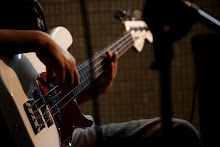http://edition.cnn.com/2008/WORLD/asiapcf/04/12/taiwan.china.ap/index.html
Beijing 'thinking deeply' over Taiwan
Story Highlights
NEW: Beijing cautiously signals relations could improve with Taiwan
Highest-level contact between longtime rivals since split nearly 60 years ago
China claims Taiwan as part of its territory, insists the two sides must unify
Taiwan president wants treaty, will not discuss unification during his presidency
BOAO, China (AP) -- Chinese President Hu Jintao said he was thinking deeply about improving relations with Taiwan, state-run media reported Sunday, one day after an ice-breaking meeting between the rivals that have been locked in a standoff for nearly six decades.
Hu made history Saturday by briefly visiting with Taiwanese Vice President-elect Vincent Siew, who will take office next month. Their chat on the sidelines of a business conference made Siew the highest-ranking elected figure from across the Taiwan Strait to meet with a Chinese president.
After the discussion, Siew quickly met with reporters and characterized his late afternoon sit-down with Hu as "friendly," and he praised him for being "pragmatic." But Beijing waited until after midnight on Sunday to share Hu's account of the 20-minute meeting at the southern Chinese resort of Boao.
Hu's comments in the Xinhua report were cautious and simply summarized the meeting without reciprocating Siew's praise. But Hu reportedly said the annual weekend conference in Boao -- where businesspeople mix with world leaders -- "inspired us to think deep about cross-Straits economic exchanges and cooperation under the new circumstances."
Hu endorsed two of Siew's key proposals: opening up Taiwan to more Chinese tourists and allowing weekend charter flights, Xinhua said. Direct air travel across the Taiwan Strait has been banned since the two sides split amid civil war in 1949.
Many hoped the Hu-Siew meeting would mark a thawing in the relations that have been in a deep freeze during the eight-year rule of Taiwanese President Chen Shui-bian. Hu and Chen distrusted each other, and neither was ready to make compromises that would get them to the bargaining table.
At times, an improvement in relations seemed hopeless and both sides appeared to be moving toward a war, which could quickly involve the U.S. -- Taiwan's most important friend.
Beijing loathed Chen because he refused to embrace China's sacred goal: eventual unification. Chen believed that only Taiwan's 23 million people had the right to determine the democratic island's future. But Beijing insisted that Taiwan was an inseparable part of the motherland that must return -- the sooner the better.
In the Xinhua report Sunday, Hu didn't mention Chen by name but the Chinese leader said relations with Taiwan "suffered twists and turns for reasons known to all" in recent years.
Beijing is much more comfortable with Siew and his political partner, President-elect Ma Ying-jeou. Neither have publicly opposed unification, but they insist the thorny issue should be set aside for now so that future generations can settle it.
Daniel Tang, a China expert at Taiwan's Chungyu Institute of Technology, said Hu was using his meeting with Siew to help improve China's image as it deals with criticism over issues like its crackdown in Tibet.
"China needs to produce positive results in cross-strait relations to divert attention from rows over its human right record before the Olympics," Tang said.
But Tang added that problems could emerge after the Olympics when the Taiwanese sovereignty issue would likely become a contentious point once again.


沒有留言:
張貼留言